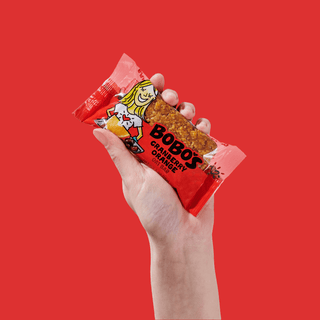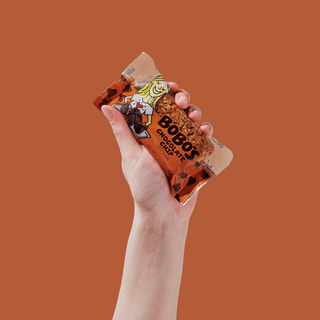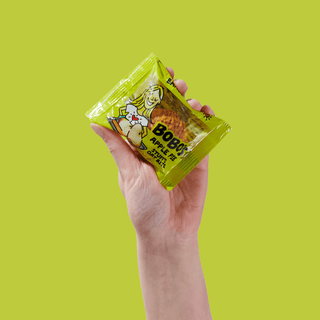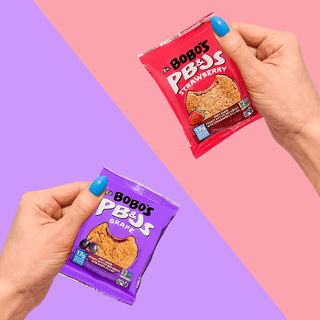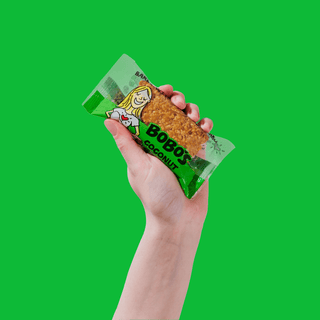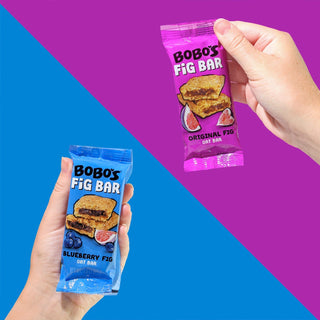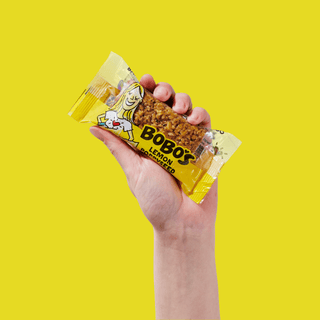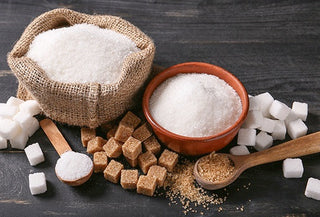By Emma Caplan-Fisher
Sugar is found in everything from fruits to chocolate, but not all sugar is made equal. Natural sugars are found in foods that offer us nutrients and energy, like fruits and vegetables. On the other hand, added sugars can be quite harmful when we consume too much of them.
If you're looking to maintain a healthy lifestyle and boost your well-being, being aware of how sugar affects your body and making any needed dietary adjustments is a great place to start.
Keep reading to learn more about the differences between natural sugar vs added sugar and the pros and cons of each, how your body reacts to different types of sugars, how to incorporate sugar into your diet conscientiously, and some great low-sugar food options.
What is natural sugar?
Natural sugar is contained in whole foods like fruits, vegetables, dairy items, and some grains and legumes. You'll find natural sugars in various forms, including fructose, glucose, and lactose. Some are complex carbohydrates that your body breaks down into glucose, and most contain nutrients, fiber, and antioxidants.
Pros of natural sugar
There are some benefits to consuming natural sugar vs added sugar:
1. We process natural sugars slower than added sugars, so our blood glucose level stays higher for longer.
2. Our metabolism stays more stable for longer because the natural sugars of fructose and lactose in fruit and dairy get digested slower than added sugar.
3. Natural sugar contains nutrients. Natural sugars come in healthy foods that offer nutrients your body needs, like vitamins, minerals, fiber, and protein.
4. Natural sugar sources typically have high water content and low calories and sodium.
5. Natural sugars can boost satiety. Foods with natural sugars tend to leave you feeling fuller, longer. For example, milk contains lactose, a natural sugar, along with protein, which is filling and satisfying. Fruits and vegetables have plenty of fiber, which helps curb our appetite.
Cons of natural sugar
Is natural sugar bad for you? Well, they say it's often okay to enjoy less-than-healthy foods in moderation, and this certainly applies to added sugar. When it comes to natural sugar, we tend not to look at it the same way since we get those added nutrients like vitamins, minerals, fiber, and protein our bodies need.
So, is natural sugar better than added sugar? Overall, yes. However, the one downside is natural sugar from juice. Since it lacks the fiber that fruit offers and one cup is equivalent to more than a piece of fruit, you're getting more natural sugar (fructose) from it. So, if you're a juice drinker, stick to five ounces per day.
What is added sugar?
Added sugar is exactly what it sounds like. It's defined by the U.S. Department of Agriculture (USDA) as “caloric sweeteners that are added to foods as ingredients during food preparation, at the table, or during food processing”. So, added sugar isn't a natural part of the foods we eat — rather, it's added to them either during the manufacturing process or by us before eating.
While there are over 100 different types of added sugars, here are some of the most common ones:
- sucrose or cane sugar
- brown sugar
- confectioners’ sugar
- Syrups (like corn syrup)
- honey
- molasses
- dextrose
- fructose
- maltose
- undiluted juice concentrate present in foods and beverages
Pros of added sugar
There aren't many positive things to say about added sugar, since we don't get any nutrients from it (unlike natural sugar). However, it can be a quick source of energy, convenient to buy and use, and common in baking.
Cons of added sugar
There are several downsides to adding sugar to the foods we eat or consuming processed foods, as most of them contain added sugar (even things like dressings, sauces, packaged oatmeal, ketchup, and some flavored yogurts).
1. Connected to chronic disease and other health issues. Consuming too much added sugar is strongly linked with obesity, heart disease, inflammation, brain function, cancer, non-alcoholic fatty liver disease, insulin resistance or diabetes, stress, premature skin aging, and other health problems.
2. Can cause sugar crashes. Soon after consuming too much added sugar, our blood glucose levels quickly drop and cause what we think of as a "sugar crash" — often with symptoms of moodiness, hunger, and cravings for even more sugar. This happens because added sugars are typically used by the body right away for energy (unlike natural sugars) or absorbed by the liver and stored as glycogen or fat.
3. Offers zero benefit besides calories. Although your body uses added sugars for energy, they don't deliver any nutrients to make this happen (while natural sugars do).
How your body reacts to different types of sugars
Our bodies react differently to sugar depending on the type we consume. Simple carbohydrates are comprised of monosaccharide and disaccharide molecules. Our bodies digest them fast and immediately send energy into the bloodstream. We need this energy to live, but the effects from natural simple carbohydrates (natural sugar) are much different than those from added simple carbohydrates (added sugar).
Here's how various types of sugars can affect our bodies.
Fructose. When consumed in excess, fructose is considered the most harmful type of sugar, and it's also been found to increase the chance of developing type 2 diabetes. Fructose is found in fruit, juice, sweeteners, and any food with sugar listed in its ingredients. This type of sugar is directly absorbed into the bloodstream but raises our blood sugar levels at a slower rate than glucose. That said, consuming too much fructose can adversely impact the liver since it gets converted to fat instead of carbohydrates and stored there. This storage of fat can cause weight gain, non-alcoholic liver disease, or metabolic syndrome
Studies show it also engages a reward pathway in the brain that can lead to sugar cravings, and it boosts ghrelin, a hormone related to hunger, making you feel less full after eating.
Glucose. We need glucose to survive. Luckily, it's created by the breakdown of fiber, starch, and carbohydrates from much of the food we eat. Glucose is in its simplest form and doesn't need to be broken down before our bodies can use it — in fact, it's one of the fastest monosaccharides the bloodstream absorbs. This means our blood sugar levels rise faster (or spike) when we eat foods that contain glucose.
Sucrose. Also known as table sugar, sucrose is a combination of fructose and glucose. You'll often see it as crystalized white sugar. Our digestive enzymes quickly break down sucrose into molecules that help it absorb into the body and metabolize in the liver — at which time our blood sugar levels spike. In fact, studies have found sucrose creates similar increases as glucose and higher increases than fructose.
Lactose. Lactose is naturally found in cow's milk and other dairy products. It's made of galactose and glucose sugars that get broken down into simple sugars and absorbed into our bloodstream. These food products can help control high blood pressure (often linked with type 2 diabetes), thanks to their nutrients like calcium, magnesium, and potassium. While drinking a glass of whole milk will raise our blood glucose levels, the milk's fat content will prevent them from rising as quickly as fat-free, low-fat, or sweetened milk.
How to incorporate sugar into your diet conscientiously
It's nearly impossible to lead a completely sugar-free life, as sugar is found in almost everything we eat. The good news is, to stay healthy, you don't have to avoid your favorite snacks entirely, and there are plenty of healthy sweets alternatives.
The key is being informed, planning well, and limiting hidden sugars. Read ingredient lists and food labels carefully — you'll find added sugars in many processed, canned, and packaged foods, fast foods, and items like cereals, sauces, and frozen meals. Watch out, as this can include hidden sugars like corn sweetener or syrup, fruit juice concentrate, honey, molasses, and more.
Instead, eat plenty of whole foods and make your own versions of prepared items, like granola or dips. You can also swap common higher-sugar items for lower-sugar versions, like:
- plain yogurt with fresh berries instead of berry-flavored yogurt
- oil and vinegar instead of processed salad dressing
- salsa instead of ketchup
- avocado instead of mayonnaise
- cinnamon in coffee instead of sugar
- coconut or sparkling water instead of sports drinks or soda
Opt for low-fat and no-sugar-added items and drink water instead of juice or other sugary drinks.
The Dietary Guidelines for Americans 2020–2025 recommends we consume no more than 10 percent of our daily calories from added sugar. This also means no more than 9 teaspoons for men and 6 teaspoons for women per day, according to the American Heart Association.
Low sugar food options
The following are examples of low or no-sugar food options you can add to your diet now:
1. Plant-based proteins, like eggs, nut butters, and soy products including tempeh and tofu (again, read the labels and watch for added sugars in any prepared products).
2. Fruits. Green apples and berries contain the lowest natural sugars, while dried and tropical fruits have the highest. No fresh fruit has any added sugar.
3. Vegetables. All vegetables are low in sugars, with starchy vegetables like carrots and some potatoes higher in natural sugars.
4. Grains. Most whole grains and grain products like rice won't have added sugars, except for items like cereals and packaged oatmeals.
5. Dairy products & dairy alternatives. While dairy products have natural sugars, plain, unsweetened dairy and most plant-based milk products contain no added sugars.
6. Beans and legumes. These are low in natural sugars and contain no added sugars (but watch out for added sugars in canned cooked beans).
7. Nuts & seeds. Salted and roasted are most flavorful, but avoid trail mixes which can contain chocolate, candy, and/or higher-sugar dried fruits.
8. Snacks. Oat bars are a healthy snack option, and they come in plenty of tasty flavors like chocolate almond brownie.

